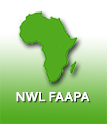Accra (Ghana), May 16, GNA-Eight female-led agribusinesses in the Upper West Region of Ghana, have received support from Plan International Ghana to scale up their business and to bridge the gap between the males and females in the agribusiness sector.
The support, which was on the “Building Female-Led Agribusiness Project (FLAP)”, included cash amount of GH₵30,000 each, mentorship, capacity building in book-keeping and business management, product branding and marketing among others.
The businesses were in the areas of bee keeping, crops and animal rearing, shea butter and vegetable processing among others.
The initiative is being implemented by the Plan International Ghana Alumni Network in partnership with Plan International Ghana and funding support from the Australian High Commission under the Direct Aid Programme.
It is aimed, at helping to develop agribusinesses founded by young females, which had growth prospects but stifled by financial and technical support constraints.
About 40 female-led agribusinesses pitched for the support and were subjected to rigorous screening processes, out of which eight were shortlisted to receive the support.
Madam Josephine Fiawornu, the Sponsorship Manager at Plan International Ghana, who was speaking at the launch of the project, noted that the initiative became necessary due to the growing need for support to female-led agribusinesses to overcome the myriad of challenges to thrive.
She said “over the years, we’ve realised that various opportunities come in this sector and it is silent on promoting or supporting women”.
As young people, they are vibrant, they are aggressive, they are assertive, the only thing they need is a little push, both technically and financially,” she explained.
Madam Fiawornu said the initiative was developed from the outcome of consultations carried out by the Alumni Network in the Upper West and the Central Regions to ascertain the challenges that militated against females’ participation in agribusiness and how they could be supported to be active players in the sector.
She indicated that the project was developed as a response mechanism to the challenges identified through the consultations.
Mr Kamaldeen Iddrisu, Programmes Coordinator for Plan International Ghana, Wa Office, noted that the one-year project was in line with the UN Sustainable Development Goal (SDG) target 2.4, sought to achieve sustainable agriculture, which would also help achieve zero hunger by 2030.
“Women in Agriculture often lack infrastructure, reliable energy supply, technology, access to rural finance, secure rights to land and other resources.
They also lack information and training, and obviously access to markets, be it local, national or international markets,” he explained.
He indicated that there was therefore the urgent need for partnership between stakeholders to address those challenges facing women in agriculture as no individual entity could meet all those challenges.
Mr Ruben Binpori, the Inclusive Business Development Officer of the Market Oriented Agriculture Programme (MOAP), observed that there was the need to prioritise support for women in agriculture if the country was to realise the transformation in the agricultural sector.
The beneficiaries expressed gratitude to Plan International Ghana and its partners for the support and expressed the hope that the support would help them improve their businesses.
Representatives from the Wa Municipal Assembly, Ghana Enterprise Agency, Ministry of Food and Agriculture and the Queen Mothers’ Association among others were also present at the launch.


